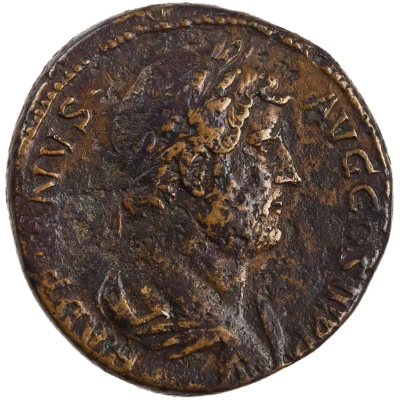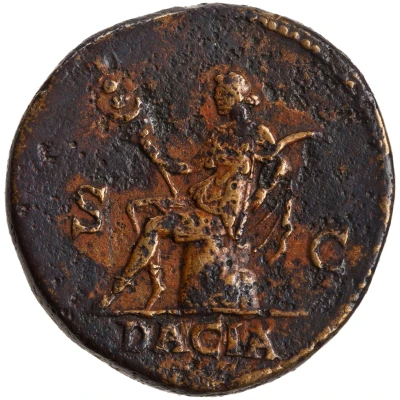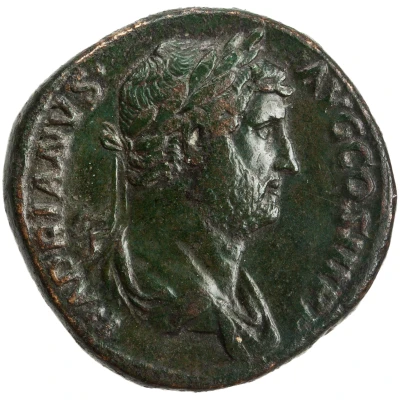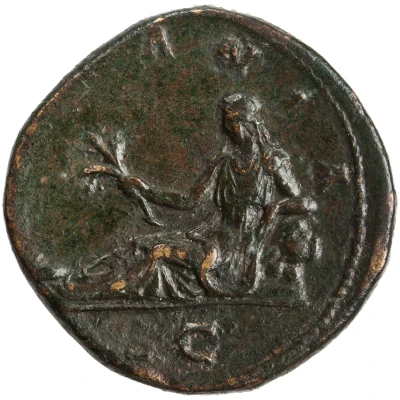


© American Numismatic Society (ANS)
Sestertius - Hadrian DACIA S C; Dacia
| Orichalcum | 25 g | 32.5 mm |
| Issuer | Rome › Roman Empire (27 BC - 395 AD) |
|---|---|
| Emperor | Hadrian (Publius Aelius Hadrianus) (117-138) |
| Type | Standard circulation coin |
| Years | 130-133 |
| Value | 1 Sestertius = ¼ Denarius |
| Currency | Denarius, Reform of Augustus (27 BC – AD 215) |
| Composition | Orichalcum |
| Weight | 25 g |
| Diameter | 32.5 mm |
| Shape | Round (irregular) |
| Technique | Hammered |
| Demonetized | Yes |
| Updated | 2024-10-06 |
| Numista | N#256137 |
|---|---|
| Rarity index | 97% |
Reverse
Dacia seated left on rocks, sometimes resting foot on helmet, holding standard and falx.
Script: Latin
Lettering:
DACIA
S C
Translation:
Dacia. Senatus Consultum.
Dacia. Decree of the senate.
Comment
Source: Online Coins of the Roman Empire (OCRE)Interesting fact
The Sestertius coin , which features Hadrian and Dacia, is notable for its use of the metal Orichalcum. Orichalcum was a bronze-like alloy that was used in some Roman coins during the 2nd century AD, and it's believed to have been made from a combination of copper, zinc, and other metals. The use of Orichalcum in coins was a departure from the more common bronze and silver coins of the time, and it's thought to have been used to create a more durable and resistant coinage. The fact that this coin was made using Orichalcum makes it a unique and interesting example of Roman numismatics.

